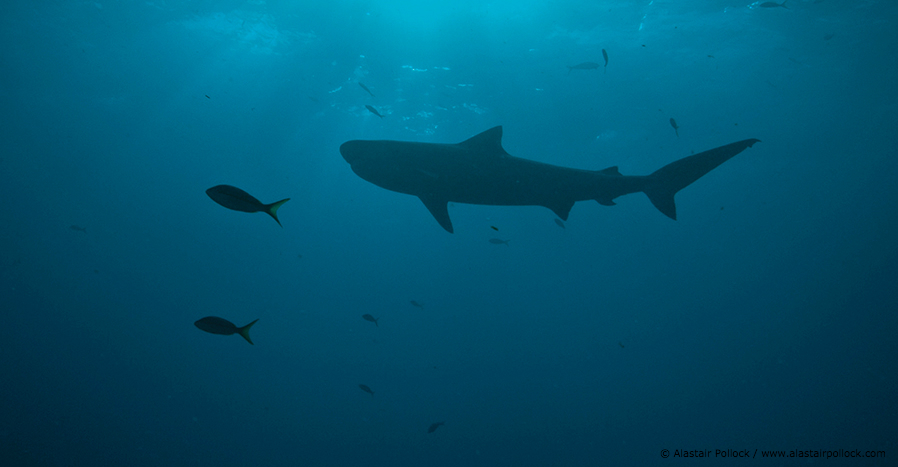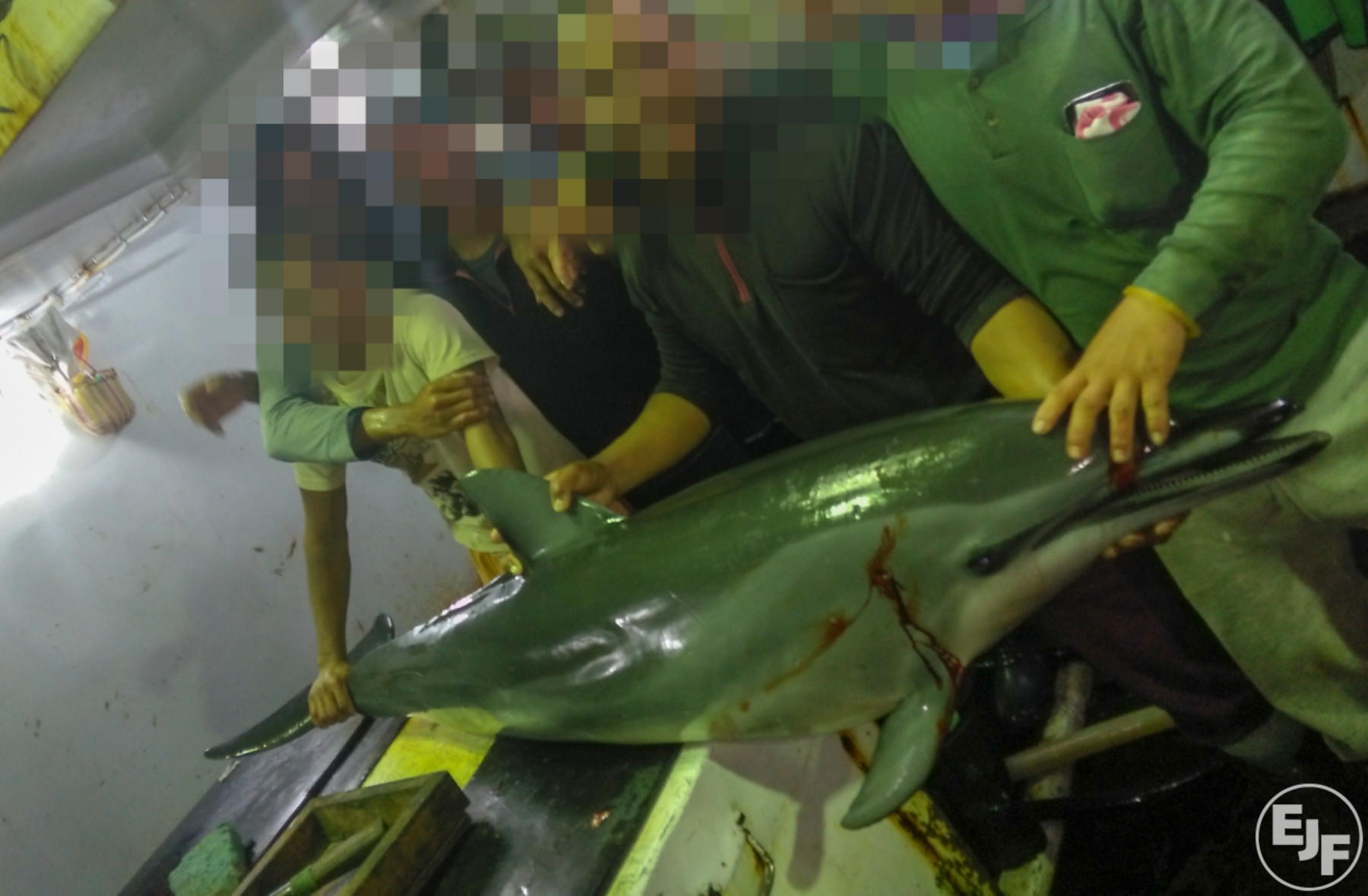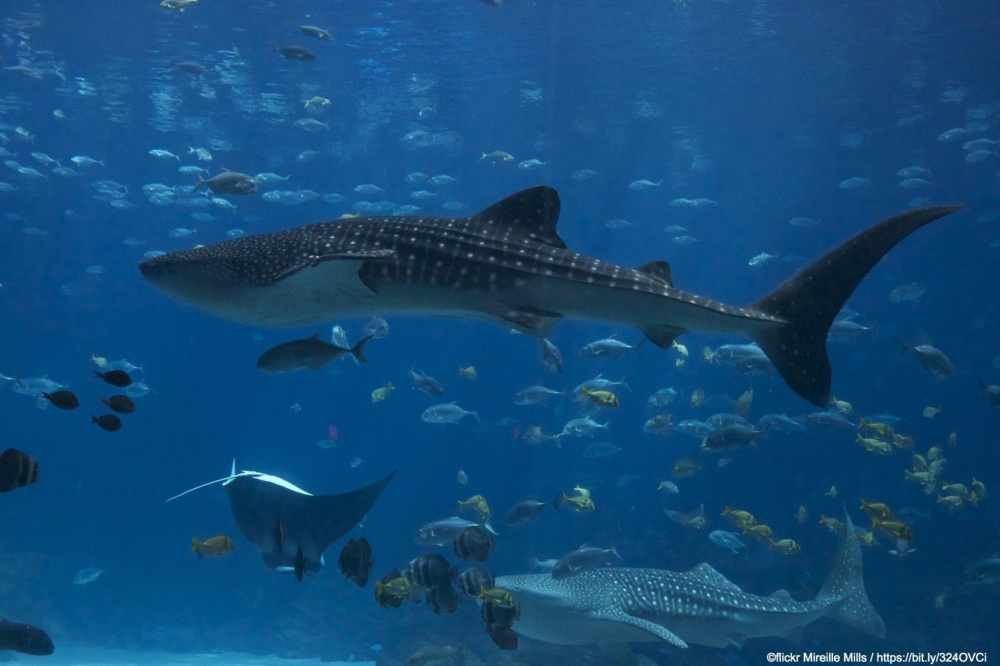
International Whale Shark Day: More Vulnerable than Vicious
Growing up to 14 meters long and weighing 12 tons, whale sharks play an important role in the health of our oceans. However, these gentle giants, now endangered, are still hunted ruthlessly for their fins, meat, oil and skins. Their very existence is under threat because of illegal and unsustainable fishing, just like other shark species all over the world.
Since industrial fishing began in the early 1950s, 90% of the world’s large ocean fish - such as sharks, cod and swordfish - have been lost. Overall, 90% of the planet’s fish stocks are now either fully exploited or overfished, according to a report from the UN Food and Agriculture Organisation (FAO).
Sharks are especially hard hit: Worldwide, a quarter are classified as threatened as a result of overfishing alone. Sharks are particularly vulnerable to overfishing because they tend to grow slowly, reach sexual maturity late and have low rates of reproduction.
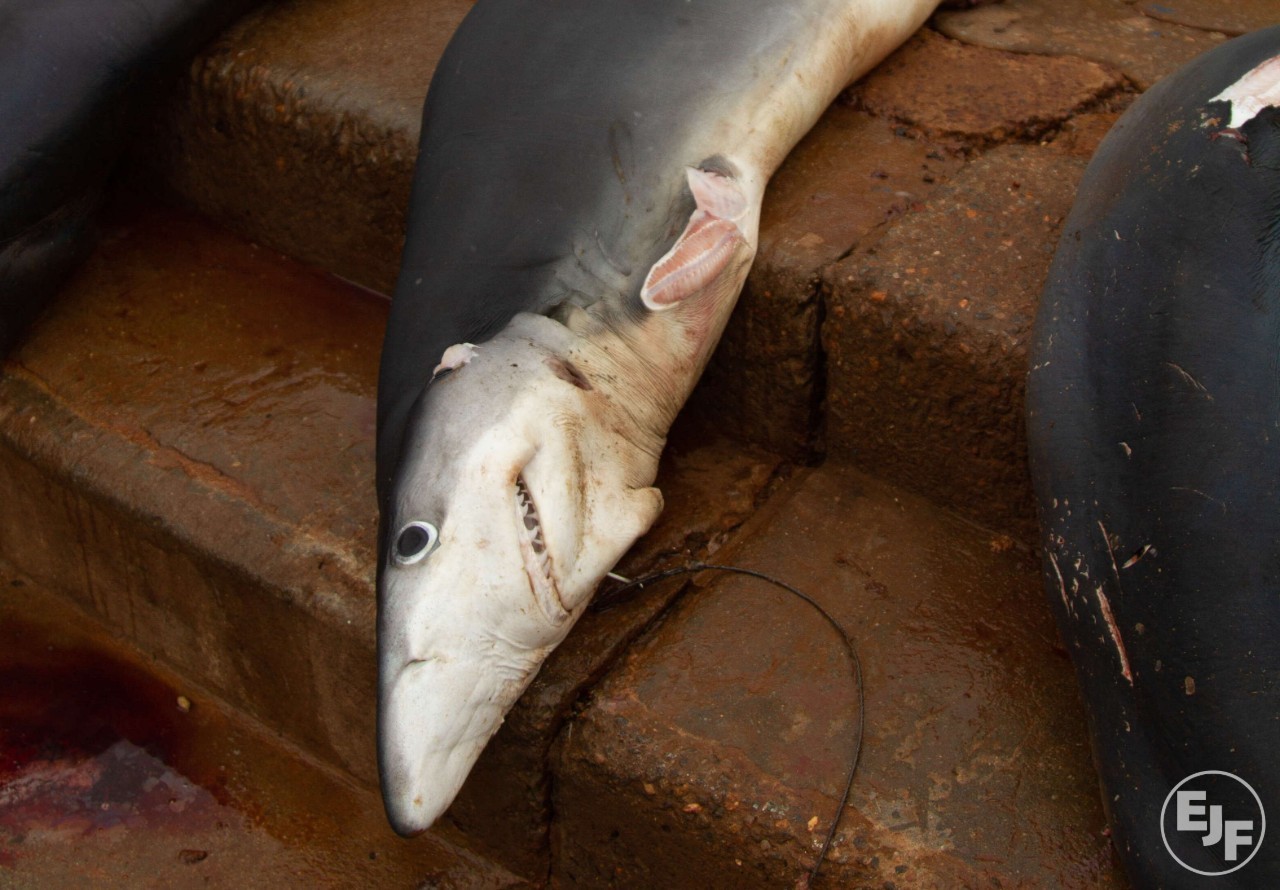
“All around the world, our oceans are under threat, and especially the apex predators like sharks and rays that play a crucial role in the balance and health of marine ecosystems.”
- EJF Executive Director Steve Trent
Sharks and rays play a vital role in the health of many marine habitats. Loss of sharks can lead to dramatic imbalances in the ecosystem that can cause the degradation of coral reefs and destruction of seagrass beds, both of which provide important nursery habitats for young fish.
Illegal fishing and shark finning are a major threat
Each year, an average of 100 million sharks are fished for food worldwide. In West Africa, a region especially dependent on healthy marine ecosystems for food security, shark and ray populations are declining sharply. Although local fishers do have an impact, industrial vessels take the lion’s share. Illegal fishing by international vessels is rife in the Gulf of Guinea, and they often target sharks and rays.
The shark fin industry is particularly gruesome and wasteful. EJF’s past investigations have revealed systematic illegal shark finning on board industrial trawlers. Once the fins have been cut from the body, the sharks are thrown back into the ocean, often still alive. Unable to swim without their fins, they wallow on the seabed until they suffocate or bleed to death.
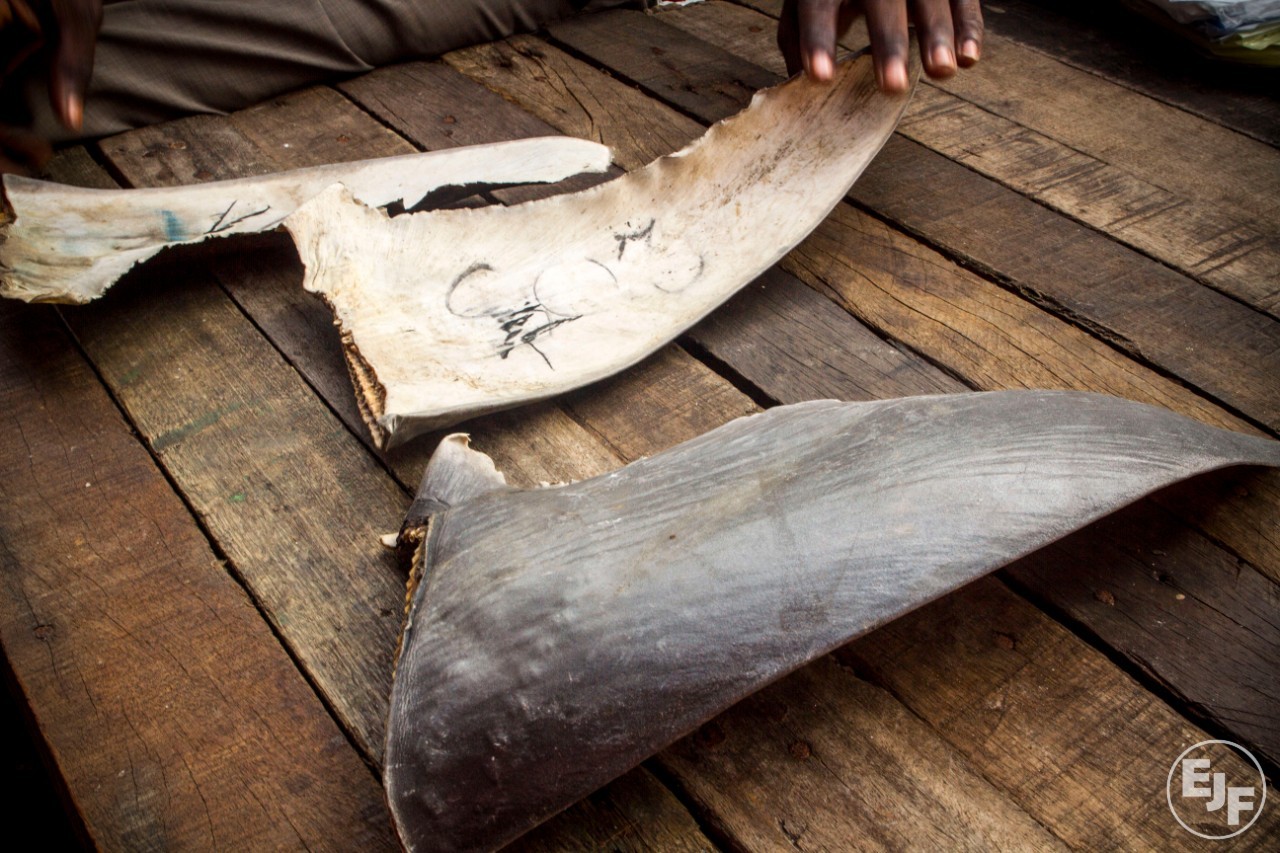
Legal protection still lacking in West African countries
Currently, there is no legal protection for sharks in many West African countries – such as Ghana or the Ivory Coast – where they are being hunted to near extinction. EJF is calling for a global ban on shark finning and legal protection for these threatened species and aim to build our work across the West African region in order to secure effective measures for these guardians of the sea.
We are also calling for the protection and expansion of inshore exclusion zones – waters reserved for traditional small-scale fishers – and Marine Protected Areas to allow marine wildlife the chance to recover and to provide refuge for endangered or vulnerable species.
Working globally to protect endangered species
In 2018, the government of Liberia has committed to a National Plan of Action for sharks and rays, which will be implemented with the help of the Environmental Justice Foundation.
We’ve begun by working closely with local scientists and the National Fisheries and Aquaculture Authority, to develop a sustainable management plan and appropriate legal framework to safeguard shark populations.
Because data on the state of shark stocks remains scarce, we are also training local fishing communities in data collection on shark populations and catches. Knowledge of trends in the diversity of the species landed, and their sizes, as well as the number of canoes and how long they spend at sea will all help chart a course towards the long-term sustainability of the fishery.

It is vital that such management plans exist. Not only are these top predators magnificent animals, but their loss can have serious impacts on entire marine ecosystems. Wildlife and coastal communities alike will suffer the consequences of their demise.
SIGN UP FOR OUR EMAILS AND STAY UP TO DATE WITH EJF
